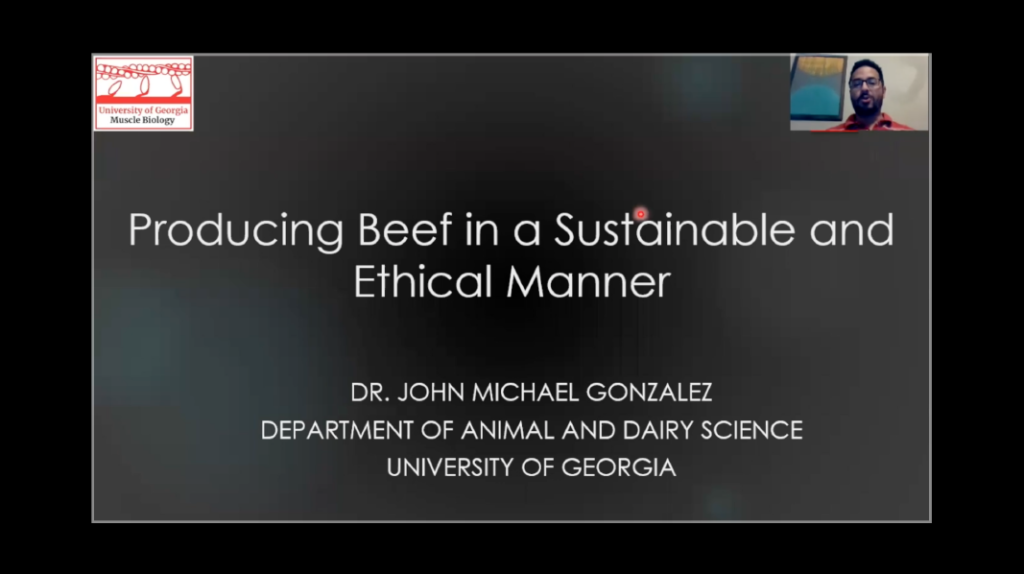Part 1 Asynchronous Online Discussion Guest Lecture by Dr. John Michael Gonzalez from the Department of Animal & Dairy Science, University of Georgia (USA)
Participants who registered to take part in Asynchronous Online Discussion are encouraged to leave their impressions and thoughts here. Let’s have a great lively online discussion!
USE THE VIDEO LINK BELOW IF YOU HAVE PROBLEMS ACCESSING YOUTUBE or IF YOU ARE ACCESSING FROM CHINA:


Thank you, Dr. Gonzalez, for the enlightening presentation about US beef production (e.g., pros and cons of conventional, natural and grass-fed methods; issues related to water consumption and waste removal; how animal welfare is a priority among consumers). I wondered if the U.S. cost of beef and beef’s protein content varied depending on feeding method.
Best wishes for continued success at the University of Georgia.
Sincerely,
Monica Kennison
Berea College
Berea, Kentucky, USA.
It is really interesting that you ask what is sustainable mean to a person? Your lecture shows that a meaning of sustainable is different from a person to a person, from country to country, and from a culture to a culture. I think growth promoting implants seems unhealthy to a Japanese eyes. It is unhealthy to an animal and also unhealthy to a person eating it. Why does economic efficiency come first in stead of animal health and human health? Recently a number of vegetarians is increasing in US. Some are because of health, other are political reasons. To pursuit the efficiency does not have any goals, I mean, it is a kind of never-ending competition.
It is really interesting that you ask what is sustainable mean to a person? Your lecture shows that a meaning of sustainable is different from a person to a person, from country to country, and from a culture to a culture. I think growth promoting implants seems unhealthy to a Japanese eyes. It is unhealthy to an animal and also unhealthy to a person eating it. Why does economic efficiency come first in stead of animal health and human health? Recently a number of vegetarians is increasing in US. Some are because of health, other are political reasons. To pursuit the efficiency does not have any goals, I mean, it is a kind of never-ending competition.
Thank you Dr. Gonzalez for your careful explanation in a way that even a layman like me could follow.
It was very meaningful to know that how important animal welfare is in the US beef industry. This is because, although I was familiar with the term “animal welfare”, I had not had the opportunity to consider its deeper meaning through specific examples.
Thank you Dr. Gonzalez for being part of this symposium and giving a truly informative video on the US beef industry. About the growth promotants like the synthetic steroids and hormones, can these substances leak into the runoff or feedlot soils or remain in cattle manure which in turn gets used for fertilizer? Are there any dangers or should I say, public safety issues with the use of such growth enhancers?
We could understand from this lecture how scientists are doing the best they can at the intersection of various values such as economics, animal welfare, and sustainability in relation to beef, which is very close to our daily lives.